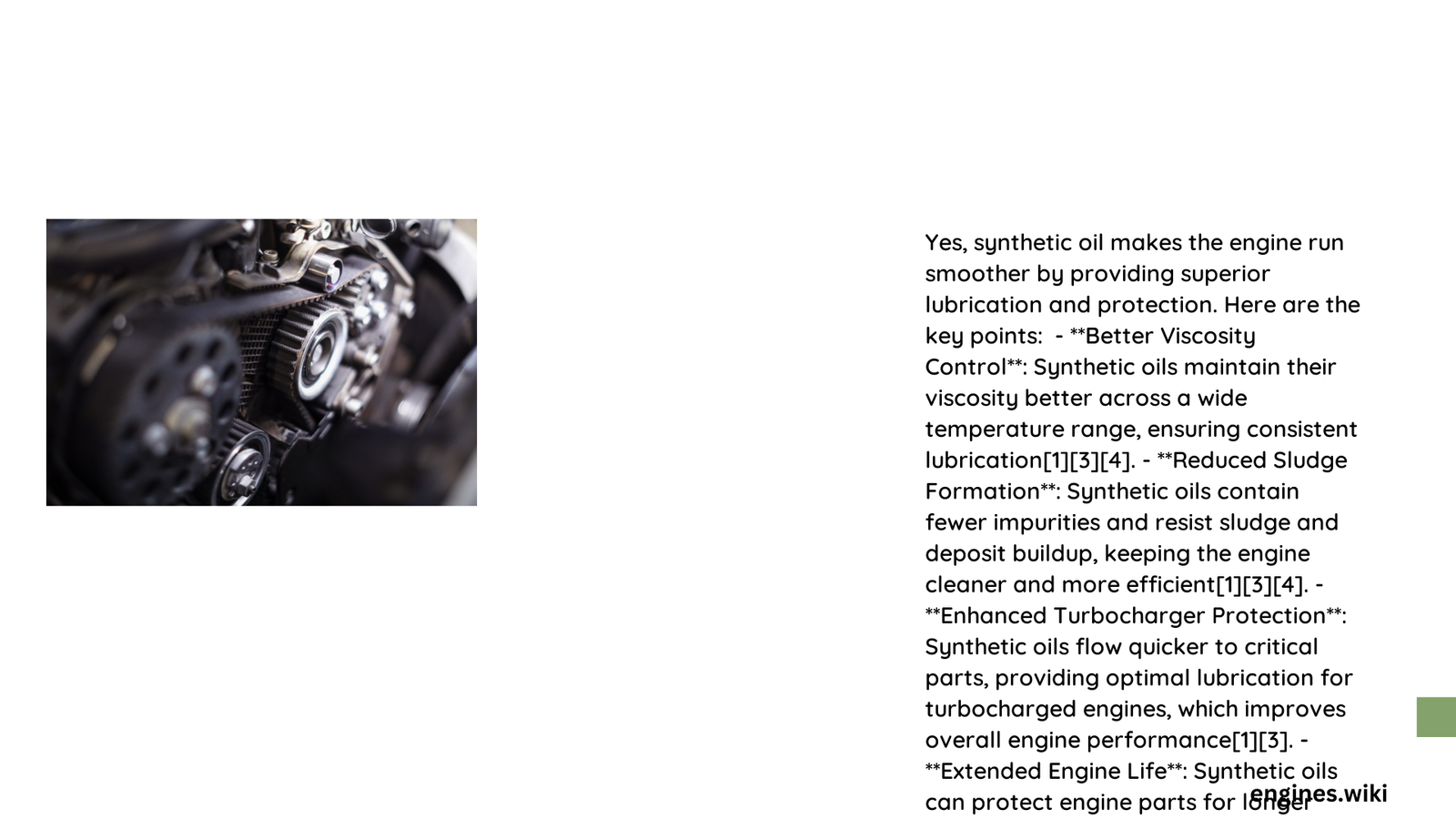Synthetic oil represents a revolutionary lubricant technology that dramatically transforms engine performance by creating a superior protective layer between moving mechanical components. Vehicle owners seeking optimal engine smoothness and longevity can leverage synthetic oil’s advanced molecular engineering to reduce friction, maintain consistent viscosity, and protect critical engine parts across extreme temperature ranges.
What Makes Synthetic Oil Different from Conventional Oil?
Synthetic oil distinguishes itself through unique molecular characteristics that directly impact engine smoothness:
How Does Molecular Structure Impact Engine Performance?
- Uniform Molecular Composition: Unlike conventional oils with irregular molecular structures, synthetic oils feature precisely engineered molecules
- Enhanced Lubrication: Consistent molecular design enables smoother flow through intricate engine pathways
- Reduced Mechanical Friction: Engineered molecules create more efficient lubrication barriers
What Specific Mechanisms Improve Engine Smoothness?
| Mechanism | Performance Impact | Temperature Stability |
|---|---|---|
| Friction Reduction | 30-50% Less Wear | -40°F to 300°F Range |
| Viscosity Maintenance | Consistent Lubrication | Stable Under Extreme Conditions |
| Thermal Breakdown Resistance | Extended Engine Life | Minimal Performance Degradation |
Can Synthetic Oil Enhance Overall Engine Performance?

Synthetic oil provides multiple performance advantages:
- Improved Fuel Efficiency
- Reduces internal engine resistance
- Potentially increases miles per gallon
-
Minimizes energy losses through friction
-
Temperature Adaptability
- Maintains consistent viscosity in cold starts
- Prevents oil breakdown during high-temperature operations
- Provides reliable lubrication across diverse driving conditions
What Are the Potential Cost Considerations?
While synthetic oil represents a higher initial investment, long-term benefits include:
- Extended oil change intervals
- Reduced engine wear
- Potential maintenance cost savings
- Enhanced overall engine longevity
How Do Professionals Recommend Synthetic Oil Transition?
Expert recommendations for transitioning to synthetic oil include:
- Consult vehicle manufacturer specifications
- Consider engine age and current condition
- Gradually introduce synthetic oil during maintenance cycles
- Monitor engine performance after transition
What Performance Metrics Demonstrate Synthetic Oil’s Effectiveness?
Quantitative performance indicators reveal synthetic oil’s superiority:
- Friction Reduction: Up to 40% lower mechanical resistance
- Wear Protection: Significantly decreased component degradation
- Temperature Stability: Maintains viscosity across -40°F to 300°F ranges
Are There Any Potential Limitations?
While synthetic oil offers numerous advantages, potential considerations include:
- Higher initial cost
- Potential seal compatibility issues in older vehicles
- Specific manufacturer recommendations
Final Technical Assessment
Synthetic oil unequivocally demonstrates superior engine smoothness capabilities through advanced molecular engineering, reduced friction mechanisms, and comprehensive thermal stability.
Pro Tip: Always verify manufacturer recommendations and perform gradual transitions when switching lubricant technologies.
